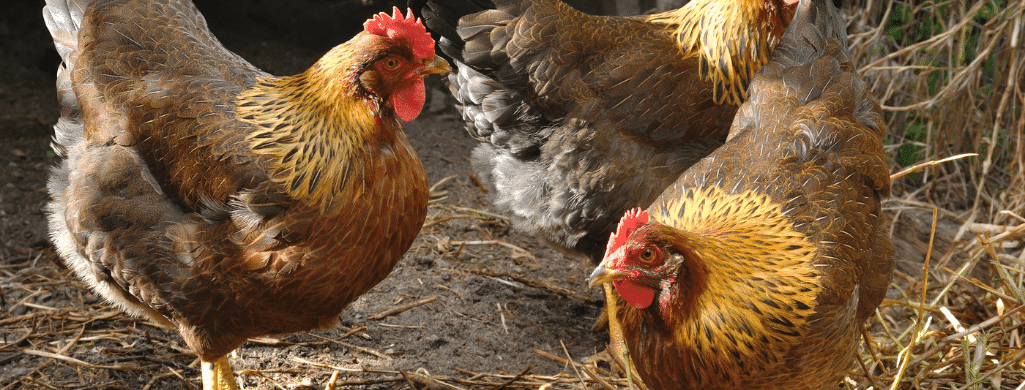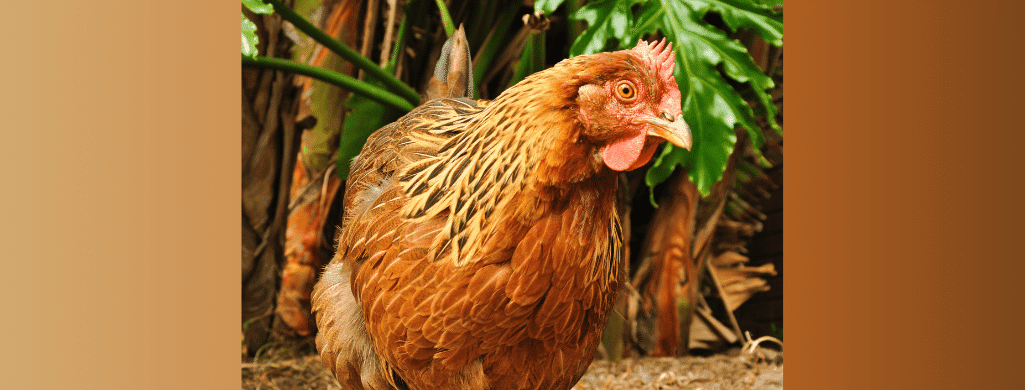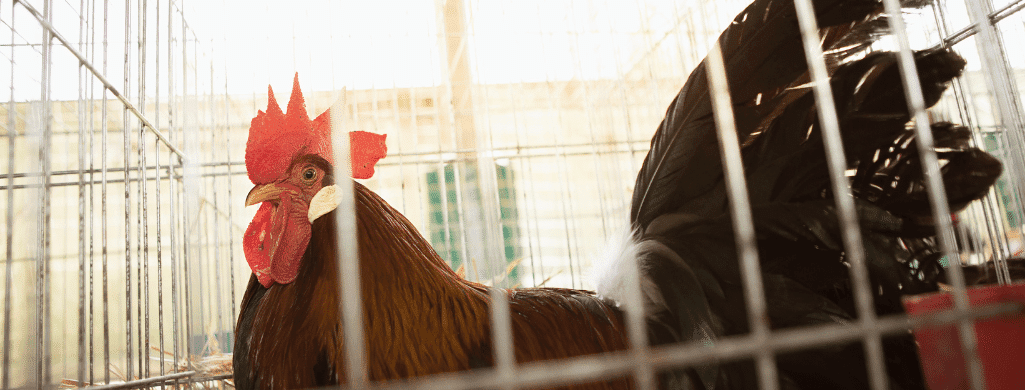There is a lot to love about such dependable birds as Welsummer hens.
However, depending on your exact situation, they may or may not be the right breed for you, as many people consider them noisy!
Welsummer chickens are moderately loud because they make noise when they want something, are about to lay an egg, or simply get excited. Being fair layers, they make up for the racket. However, their noisy nature has been known to cause problems for those living in urban areas.
Are you interested in raising Welsummers?
Keep reading to learn more about how loud they are and other facts about the breed, and discover some quieter breeds to raise around irritable neighbors.

Table of Contents
ToggleHow Loud Are Welsummers?
In a mixed flock with other popular backyard poultry breeds like the Rhode Island Red, your Welsummer hens will likely be some of the loudest birds in the coop.
A Welsummer rooster enjoys crowing, and his female counterpart adores singing her egg song.
It is simply in this bird’s nature to chat when they are excited or want something.
This obviously is not ideal in some circumstances.
For example, people living in close quarters who do not tolerate noise probably do not want a flock of Welsummers… unless you have a grudge against your neighbors.
In urban areas, raising poultry is tricky for several reasons beyond noise level, though.
If you need advice on keeping chickens in an urban locale, check out this article from the American Poultry Association.
Of course, there are other reasons you may not want to raise a noisy Welsummer rooster or hen.
Perhaps you don’t have the patience to be woken up by a crowing bird. Or maybe you have a baby who you don’t want to be disturbed.
There are plenty of reasons a noisy flock may not be practical for you, which is completely okay!
However, if noisy birds are not an issue for you, Welsummers are beloved, beautiful birds.

Why Welsummers Are Popular
This dual-purpose bird is a brown egg layer with autosexing chicks.
Welsummer hens lay consistently and reliably, especially because they do not often go broody.
They make pretty rotten mothers, so it is probably best not to rely on them for this purpose!
This means avoiding the diminished egg production often seen in broody hens.
Learn more about a Welsummer’s broody habits in our article here.
Welsummer egg production often hovers between 160-250 eggs per year. The breed standard is closer to 160, though.
They are also a hardy breed, especially known for their cold hardiness.
Though you will see a decrease in egg production during winter, your Welsummers are not especially susceptible to illness or injury in cooler weather.
Further Reading: Welsummer Chicken Egg Guide
Heavy breeds often have these traits.
However, Welsummer birds have the added health bonus of dark coloring, which protects them from predators by acting as camouflage.
The color pattern of their feathers often earns them comparison to partridges.
The distinct pattern is very different in males than females, however. This is actually the reason for the autosexing of chicks in this breed.
From the time they hatch, Welsummers of each sex is easy to tell apart.
There is so much to love about Welsummer chickens. However, the fact remains they simply may not be practical for you.
If you live in an urban area or otherwise cannot keep noisy chickens, we have some other recommendations for you.
Quiet Chicken Breeds
You may be disappointed to learn how loud Welsummers are.
But there are plenty of breeds of chicken out there that are much quieter and share other traits with the Welsummer variety.
Let’s compare some of these breeds briefly.
| Welsummer | Brahma | Plymouth Rock | Rhode Island Red | |
|---|---|---|---|---|
| Broodiness | Low | Medium | Medium | Low |
| Egg Production | Medium | Medium-High | Medium-High | High |
| Temperament | Calm/Friendly | Calm/Friendly | Calm/Friendly | Active/Friendly |
| Noise Level | Loud | Quiet | Quiet | Quiet |
| Dual-Purpose? | Yes | Yes | Yes | Yes |
From this table, it’s clear other breeds share many traits with the Welsummer chicken but without excessive noise.
Depending on what you look for in a hen, some breeds may fill your needs better than the Welsummer.
Whatever breed you get, if you raise roosters, be prepared for some crowing.
Roosters of quieter breeds are often still quieter than roosters of loud breeds. However, they are almost guaranteed to be louder than their female counterparts.

Why a Welsummer Might Cluck Non-Stop
It is important to remember why Welsummer chickens make noise. They almost always have a solid reason for clucking.
Maybe they get excited when you walk into the coop and start chatting.
Otherwise, they might be irritated to find the feeder empty and squawk to let you know they need food.
If your Welsummer hen is continuously squawking, something is going on.
Before you write it off, here are some steps you need to take to ensure your birds are okay:
- Sweep for predators
- Check food and water
- Examine the hen
Predators are likely suspects in this scenario.
When your chicken flock is in danger, they often know it before you do.
Aerial predators often have a hard time spotting Welsummers due to the coloring of their feathers. However, if they swoop down low enough, they will badly startle your entire flock.
You will likely hear clucking and commotion from more than your Welsummers if a predator terrorizes them, though.
Land predators are often not as obvious in their attacks, which is why it is so important to be vigilant.
If one hen makes a ruckus, be safe rather than sorry and sweep the area.
You may also need to refill their chicken feed or water.
Access to chicken feed is a basic need for all layers, and Welsummers are not the type to be quiet about it if their feeder is left empty for too long.
Finally, take a good look at the noisy chicken herself. She may have a splinter in her foot or has gotten tangled in something.
Welsummers know how to get your attention when they need help!
How useful was this post?
Click on a star to rate it!
We are sorry that this post was not useful for you!
Let us improve this post!
Tell us how we can improve this post?
